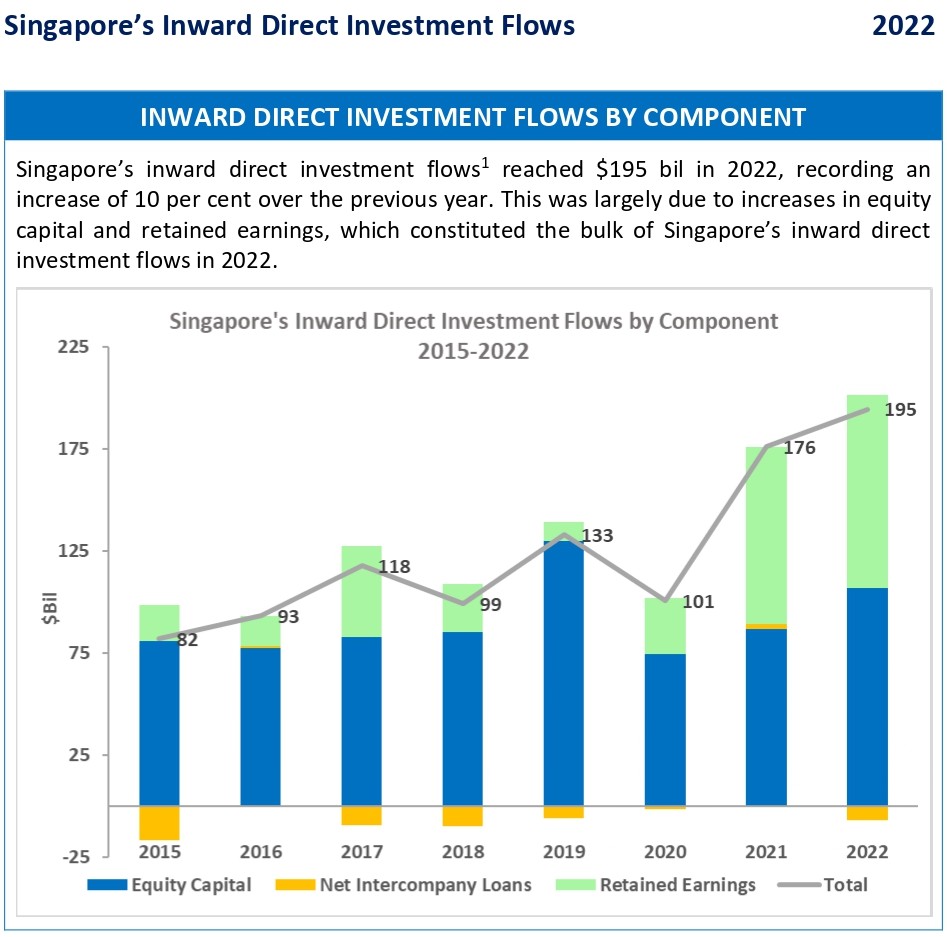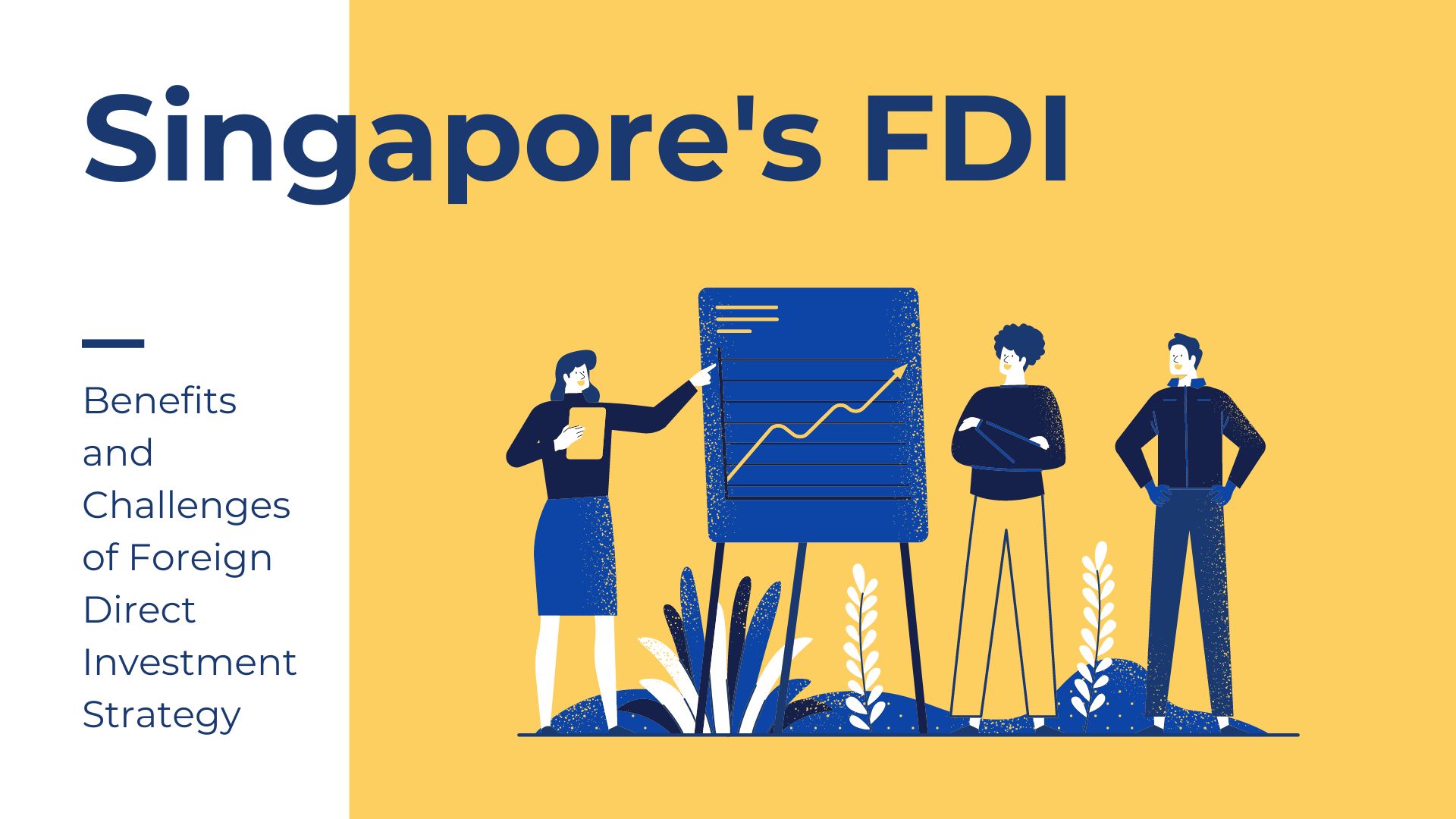Singapore’s foreign direct investment (FDI) strategy has been a crucial pillar in the country’s economic growth and development. With a strong focus on attracting foreign companies and investments, Singapore has established itself as a leading destination for businesses looking to expand their operations in Asia. However, as with any strategy, there are both benefits and challenges associated with Singapore’s FDI approach. On one hand, the influx of foreign investments has brought about job creation, increased productivity, and technological advancements. On the other hand, there have been concerns about over-reliance on foreign investments and the impact on local businesses. In this article, we will delve into the advantages and disadvantages of Singapore’s FDI strategy, exploring how it has helped shape the country’s economy and what challenges lie ahead.


The Benefits of Singapore’s Foreign Direct Investment Strategy
Singapore has been successful in attracting foreign investments due to its pro-business policies, strategic location, skilled workforce, and political stability. The benefits of Singapore’s FDI strategy are numerous and include job creation, increased productivity, technological advancements, and improved infrastructure.
One of the primary benefits of Singapore’s FDI strategy is job creation. Foreign investments have brought about a significant increase in employment opportunities, especially in the manufacturing and services sectors. According to the Singapore Economic Development Board (EDB), foreign companies in Singapore employed over 1.5 million people in 2019, representing 20% of the total workforce. This has led to a decrease in unemployment rates and an improvement in the standard of living for the local population.
Another benefit of Singapore’s FDI strategy is increased productivity. Foreign companies tend to bring with them advanced technologies and management practices, which can lead to improved efficiency and productivity. This, in turn, can translate into higher wages and better working conditions for the local workforce.
Singapore’s FDI strategy has also led to significant technological advancements in various industries. Foreign companies often bring in new and innovative technologies that can help local businesses improve their products and services. For example, the electronics industry in Singapore has benefited greatly from foreign investments, with companies such as Samsung and Hewlett-Packard establishing their operations in the country. This has helped to position Singapore as a global hub for electronics manufacturing and research and development.
In addition, Singapore’s FDI strategy has led to significant improvements in infrastructure. Foreign investments have helped to fund the development of transport networks, telecommunications systems, and other critical infrastructure projects. This has improved connectivity within the country and with other parts of Asia, making Singapore an attractive destination for businesses looking to expand their operations in the region.
The Challenges Faced by Singapore’s Foreign Direct Investment Strategy
While Singapore’s FDI strategy has been successful in attracting foreign investments and driving economic growth, it has also faced several challenges. One of the primary challenges is the over-reliance on foreign investments, which can lead to a vulnerability to global economic uncertainties.
Another challenge faced by Singapore’s FDI strategy is the impact on local businesses. The influx of foreign companies can lead to increased competition, which can be detrimental to local businesses, especially small and medium-sized enterprises (SMEs). This can result in a decline in market share, reduced revenues, and even business closures.
In addition, there have been concerns about the impact of foreign investments on the environment. Foreign companies may not be subject to the same environmental regulations as local businesses, leading to pollution and other environmental issues.
Another challenge faced by Singapore’s FDI strategy is the issue of rising costs. As the cost of living in Singapore continues to increase, foreign companies may find it more expensive to operate in the country. This can lead to a decrease in foreign investments and a potential negative impact on the country’s economy.
Singapore’s Approach to Attracting Foreign Direct Investment
Singapore has been successful in attracting foreign investments due to its pro-business policies and strategic location. The government has implemented several measures to promote foreign investments, including tax incentives, streamlined regulations, and the establishment of free trade agreements (FTAs).
One of the primary measures implemented by the government to attract foreign investments is tax incentives. The government offers various tax incentives to foreign companies, including reduced corporate tax rates and exemptions for certain types of income. This has made Singapore an attractive destination for foreign companies looking to establish their operations in Asia.
In addition, the government has streamlined regulations to make it easier for foreign companies to do business in Singapore. This includes reducing the time and cost required to register a business and obtain the necessary permits and licenses.
Singapore has also established several FTAs, which provide foreign companies with preferential access to the country’s markets. These agreements reduce trade barriers and tariffs, making it easier for foreign companies to sell their products and services in Singapore.
Factors That Influence Foreign Direct Investment in Singapore
Several factors influence foreign direct investment in Singapore. One of the primary factors is the country’s strategic location. Singapore is located at the crossroads of major shipping lanes, making it an ideal hub for trade and commerce.
Another factor that influences FDI in Singapore is the country’s skilled workforce. Singapore has a highly educated and skilled workforce, with a strong emphasis on science and technology education. This has made the country an attractive destination for companies looking to tap into Asia’s rapidly growing markets.
In addition, Singapore’s political stability and pro-business policies have been significant factors in attracting foreign investments. The government has implemented several measures to promote foreign investments, including tax incentives and streamlined regulations. This has helped to establish Singapore as a business-friendly destination.
Singapore’s Foreign Direct Investment in Different Industries
Singapore’s FDI strategy has been successful in attracting investments across various industries. One of the primary industries that have been successful in attracting foreign investments is the manufacturing sector. According to the EDB, the manufacturing sector accounted for 48% of total FDI in 2019.
The electronics industry has been particularly successful in attracting foreign investments, with companies such as Samsung and Hewlett-Packard establishing their operations in the country. The biomedical sciences industry has also been successful in attracting foreign investments, with significant investments in research and development in areas such as pharmaceuticals and medical technology.
In addition, Singapore has been successful in attracting foreign investments in the finance and services sectors. The country has established itself as a leading destination for wealth management and financial services in Asia, with many multinational companies establishing their operations in the country.
The Impact of Foreign Direct Investment on Singapore’s Economy
Foreign direct investment has had a significant impact on Singapore’s economy, driving economic growth and development. According to the EDB, foreign companies in Singapore contributed 20% of the country’s GDP in 2019.
FDI has also been significant in driving job creation, with foreign companies employing over 1.5 million people in Singapore. This has led to a decrease in unemployment rates and an improvement in the standard of living for the local population.
In addition, FDI has helped to improve productivity and efficiency in various industries, leading to higher wages and better working conditions for the local workforce. Foreign investments have also helped to fund the development of critical infrastructure projects, improving connectivity within the country and with other parts of Asia.
Future Prospects for Singapore’s Foreign Direct Investment Strategy
Singapore’s FDI strategy is likely to remain a crucial pillar in the country’s economic growth and development. The government has continued to implement measures to promote foreign investments, including tax incentives and streamlined regulations.
However, the country will need to address the challenges associated with over-reliance on foreign investments and rising costs. Singapore will need to focus on developing the local workforce and promoting innovation and entrepreneurship to reduce the country’s dependence on foreign investments.
Despite these challenges, Singapore is well-positioned to continue attracting foreign investments and driving economic growth. The country’s strategic location, skilled workforce, and pro-business policies make it an attractive destination for businesses looking to expand their operations in Asia.
Trends in Singapore’s foreign direct investment
In recent years, Singapore has seen a shift in the type of FDI it attracts. While the finance and manufacturing industries have traditionally been the primary beneficiaries of FDI, the technology sector is rapidly catching up. According to data from the Singapore Economic Development Board, the technology sector accounted for 25% of all FDI into Singapore in 2020, up from just 16% in 2015. This trend is expected to continue in the coming years, as Singapore focuses on building a strong innovation ecosystem and supporting startups.
Challenges faced by foreign investors in Singapore
While Singapore is known for its business-friendly environment, foreign investors still face some challenges when investing in the country. One of the biggest challenges is the high cost of living and doing business in Singapore. This can make it difficult for smaller businesses to compete with larger, established companies. Additionally, Singapore’s strict regulations on foreign labor can make it challenging for businesses to recruit and retain talent. Finally, some investors may be put off by Singapore’s high levels of competition, particularly in the finance and technology sectors.
Conclusion
Singapore’s foreign direct investment strategy has been a crucial pillar in the country’s economic growth and development. The benefits of Singapore’s FDI strategy include job creation, increased productivity, technological advancements, and improved infrastructure. However, the strategy also faces several challenges, including over-reliance on foreign investments and the impact on local businesses.
Singapore’s government has implemented several measures to promote foreign investments, including tax incentives, streamlined regulations, and the establishment of free trade agreements. The country has been successful in attracting foreign investments across various industries, including manufacturing, finance, and services.
Foreign direct investment has had a significant impact on Singapore’s economy, driving economic growth and development. However, the country faces stiff competition from other countries in the region, and it will need to address the challenges associated with over-reliance on foreign investments and rising costs.
Overall, Singapore’s FDI strategy is likely to remain a crucial pillar in the country’s economic growth and development, and the country is well-positioned to continue attracting foreign investments and driving economic growth in the future.
